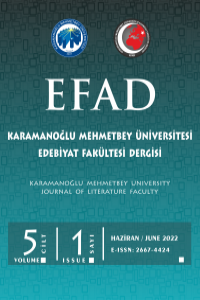Research Article
Issue Editorial Board

1977 yılında Konya’nın Beyşehir İlçesi’nde dünyaya gelen Muşmal, ilk (1987), Orta (1990) ve Lise öğrenimini Beyşehir’de tamamladı (1993). Lisans eğitimini 1993-1997 yılları arasında Selçuk Üniversitesi Fen-Edebiyat Fakültesi Tarih Bölümünde tamamlayan Muşmal, Milli Eğitim Bakanlığı’nca Aksaray İli Güzelyurt İlçesi Ilısu Kasabası İlköğretim Okuluna Sosyal Bilgiler Öğretmeni olarak atandı. Aynı yıl Yüksek Lisans ve Araştırma Görevlisi sınavlarında başarılı oldu ve 1998 yılında, SÜSBE Tarih Anabilim Dalı Yeniçağ Tarihi Bilim Dalında göreve başladı. 1999 yılında aynı üniversitenin tarih bölümünde görevlendirilen Muşmal, SÜSBE Tarih Anabilim Dalı Yeniçağ Tarihi Bilim Dalında Doç. Dr. Bayram Ürekli’nin danışmanlığında “XVII. Yüzyılın İlk Yarısında Konya’da Sosyal ve Ekonomik Hayat (1640-1650)” adındaki çalışmasıyla yüksek lisansını tamamladı (2000). Aynı enstitüde Prof. Dr. Bayram Ürekli’nin danışmanlığında “XIX. Yüzyılın İlk Yarısında Beyşehir ve Çevresi’nin Sosyal ve Ekonomik Yapısı (1790-1864)” isimli çalışmasıyla doktorasını bitirdi (2005). 2006 yılında vatani görevini yerine getiren Muşmal, 2007 yılı Ocak ayında, Selçuk Üniversitesi Fen-Edebiyat Fakültesi Tarih Bölümü Yakınçağ Tarihi kürsüsüne Yrd. Doç. Dr. olarak atanmış, aynı alanda 28 Ocak 2011 tarihinde Doçent, 16 Ocak 2017’tarihinde Profesör olmuştur. 2018 yılı başında Karamanoğlu Mehmetbey Üniversitesi Edebiyat Fakültesi Tarih Bölümü’nde görevlendirilen Muşmal, 2018 yılı başından 6 Ekim 2022 tarihine kadar Yakınçağ Tarihi Anabilim Dalı Başkanı ve Edebiyat Fakültesi Dekanı olarak görev yapmıştır. Prof. Dr. Hüseyin Muşmal, aynı üniversitede 2021-2022 yılları arasında 1 yıl Rektör Yardımcılığı görevinde bulunmuş, 6 Ekim 2022 tarihinden itibaren kadrosunun bulunduğu Selçuk Üniversitesi Edebiyat Fakültesi Tarih Bölümü’ndeki görevine geri dönmüştür. Muşmal, Konya Valiliği’nin 2017 tarihli 857 sayılı oluruyla Cumhurbaşkanlığımız Himayesinde gerçekleştirilen “Türkiye Selçuklu Sultanlarına ait Naaşların Osteoarkeolojik İncelemesi” projesinde Bilim ve Yayın Kurulunda çalışmaktadır. Yazar aynı zamanda Konya Büyükşehir Belediye’nin Kültür ve Turizm Envanteri projesinde yürütücülük yapmaktadır.
Prof. Dr. Hüseyin Muşmal’ın Yabancıların İzinde Osmanlı: Konya ve Çevresinde Araştırma Yapan Yabancılar (1876-1914) isimli ilk kitabı 2009 yılı Nisan ayında Konya’da Me-Sa yayınları arasından çıkmış, Osmanlı Eski Eser Politikası: Konya Vilayeti Örneği (1876-1914) ismindeki ikinci kitabı ise Kömen Yayınları arasında 2009 yılı ekim ayında yayımlanmıştır. Alanındaki diğer kitabı Yüksek Lisans Öğrencisi Berna Burcu Korucu ile birlikte, Beyşehir Gölü ve Adaları'nda Hayat adıyla 2014 yılında Palet yayınları arasında, uzmanlık alanıyla ilgili dördüncü kitabı ise Doktora Öğrencisi İrem Gürbüz ile birlikte Sultanın Camisi: Aziziye ismiyle 2020 yılında, Karatay Belediyesi tarafından yayımlanmıştır. 2021 yılı Nisan ayında Selenge Yayınları arasında, Doktora Öğrencisi Hasret Gümüş ile birlikte Türkiye’de Müzecilik 1839-1938 isimli eseri yayımlanan Muşmal’ın aynı yazarla hazırladığı Türkiye’de Eski Eser Kaçakçılığı adlı çalışması da 2022 yılı Kasım ayında yayımlanmıştır. Yazarın alanında 8. kitabı 2021 yılı sonunda Prof. Dr. Alaattin Aköz ve Ar. Gör. Emre Koç ile birlikte çıkardığı Yunus Emre Kirişçi Baba isimli eseridir. Muşmal’ın akademideki önemli çalışmaları Osmanlı dönemi şehir tarihi, eski eser politikası ve arkeolojik faaliyetler gibi alanlarda olup bu konular üzerine yazılmış 100’ün üzerinde ulusal, uluslararası makaleleri ve tebliğleri vardır.
Prof. Dr. Hüseyin Muşmal, çok sayıda özgün eser ve makalelerinin dışında 12 ayrı kitaba da editörlük yapmıştır. 2022 yılında Karaman’da Yunus Emre Araştırmaları ile Türk Dili ve Kültürü Araştırmaları isimli iki ayrı kitaba editörlük yapan Muşmal, 2021 yılında, Beyşehir (Tarih, Kültür, Sanat, Turizm, Sanayi ve Ticaret Şehri), 2019 yılında Karaman Araştırmaları, I (Arkeoloji, Sanat Tarihi, Tarih), Karaman Araştırmaları, II, (Coğrafya, Dil ve Edebiyat, Gastronomi, Güzel Sanatlar ve İletişim, İlahiyat, Felsefe, Sosyoloji, İktisat, İşletme, Kamu Yönetimi, Siyaset Bilimi, Uluslararası İlişkiler), 2018 yılında Ermenek Araştırmaları, I, (Arkeoloji, Sanat Tarihi, Tarih), Ermenek Araştırmaları, II, (Coğrafya, Dil ve Edebiyat, Gastronomi, Güzel Sanatlar ve İletişim, İlahiyat, Felsefe, Sosyoloji, İktisat, İşletme, Kamu Yönetimi, Siyaset Bilimi, Uluslararası İlişkiler), 2017 yılında Osmanlı Araştırmaları, 2, Doğu ve Batı Türklüğünün Ortak Tarihî Devirleri ve Münasebetleri (Toplum-Ekonomi), Osmanlı Araştırmaları, 2, Doğu ve Batı Türklüğünün Ortak Tarihî Devirleri ve Münasebetleri, (Siyaset, Yönetim, Din), Palet Yayınları, Osmanlı Araştırmaları, 2, Doğu ve Batı Türklüğünün Ortak Tarihi Devirleri ve Münasebetleri, (Edebiyat, Kültür, Sanat), 2016 yılında Uluslararası Osmanlı Araştırmalarında Yeni Eğilimler Kongresi Bildiri Kitabı ve 2010 yılında Das Erste Internationale Symposium zu den Duetsch Türkishen Historichen Kulturellen Beziehungen isimli bildiri kitabı olmak üzerinde alanında çok sayıda kitaba editörlük yapmıştır.
Prof. Dr. Hüseyin Muşmal, ayrıca şiir, hikâye, deneme gibi alanlarda da ürünler vermekte, bazı mahalli gazete ve internet sitelerinde köşe yazıları yazmaktadır. Muşmal, Türkiye Yazarlar Birliği Konya Şubesi üyesidir.









 Web
Web
Aim & Scope
The aim of Karamanoğlu Mehmetbey University Faculty of Letters is to contribute to the training of qualified researchers that our country needs by increasing the quality of undergraduate and graduate education. In order to maintain this understanding, Karamanoğlu Mehmetbey University Faculty of Letters aims to educate high-qualified professionals, researchers, experts and scientists who equip its students with the knowledge and skills they will need at a universal level, have critical thinking, can conduct research and produce projects on a universal scale, offer the produced projects to the service of the society, and has chosen to be an institution that takes part in providing university-society and university-industry cooperation. In this direction, Karamanoğlu Mehmetbey University Journal of the Faculty of Letters (KMU EFAD), which was established within it, values excellence, cooperation, harmony, effectiveness and innovation in order to realize the mission of your faculty.
The publications in the Journal of the Faculty of Letters of Karamanoğlu Mehmetbey University (KMU EFAD) will contribute to the Social and Human Sciences theoretically and methodically, and will provide an environment for research to reach the international level. In this process, our journal aims to bring new perspectives and approaches to research on Social Sciences.
Karamanoğlu Mehmetbey University Journal of the Faculty of Letters (KMU EFAD) is a national, academic, peer-reviewed and online journal that includes original and compilation scientific research articles in the fields of social sciences and humanities, established in 2018. KMU EFAD is published twice a year, in June and December. The publication language of KMU EFAD is Turkish. Research articles that are requested to be published in the journal must be prepared in accordance with KMU EFAD's editorial policy and spelling rules and delivered to the editorial group.
Author Guidelines
1. KMU EFAD EDITORIAL RULES
2. KMU EFAD WRITING AND REFERENCES RULES
2.1. Bibliography Examples
Surname, A. (Year). Thesis Name. Unpublished master's/doctoral thesis/proficiency in arts, Name of University, City.
Akkas, I. (2020). Roman and Early Byzantine/Late Roman Period trade relations in the Ancient City of Parion in the light of amphora finds between 2008-2019. Unpublished doctoral thesis, Mersin University, Mersin.
Özkaya Karaismailoğlu, A. (2006). Power debates in social theory; Marx, Nietzsche, Weber, Foucault. Unpublished master's thesis, Uludag University, Bursa.
In text: (Akkaş, 2020: 150-151) Footnote: Akkaş, 2020: 150-151
Anonymous
Anonymous, 1993. Summary of Agricultural Statistics. T.R. Prime Ministry State Institute of Statistics, Publication No: 1579, Ankara.
Internet Only Article
Author, A. (Month Year). Article name. Journal/Site Name, Issue. Retrieved from https://link on Day Month Year.
Fredrickson, B.L. (March 2000). Developing positive emotions to maximize health and well-being. Prevention&Treatment, 3, retrieved 20 November 2000 from http://:'journals.apa.org/volume3/pre301a.
Chapter or Section in an Internet Document
Document Name. (Month year). Chapter/Chapter name. Retrieved from https://link on Day Month Year.
Benton Foundation. (July 7, 1998). Barriers to closing the gap. Losing ground bit by bit: Low- income communities in the information age. Retrieved August 18, 2001 from http://www.benton.org/Library/Low-Income/two.html.
Undated, Authorless Website
The name of the resource. (n.d.). Retrieved from https://link on Day Month Year.
TMMOBB Chamber of Mechanical Engineers Library Catalog Scan (n.d.). Retrieved 8 August 2000 from http://kutuphane.mmo.org.tr/tarama.php?hit=1.
Ethical Principles and Publication Policy
KMU EFAD
ETHICAL PRINCIPLES AND PUBLICATION POLICIES
1. GENERAL ACTIONS AGAINST SCIENTIFIC RESEARCH AND PUBLICATION ETHICS
2. STAKEHOLDER RESPONSIBILITIES
3. PLAGIARISM POLICY
4. OPEN ACCESS POLICY
 This work is licensed under a Creative Commons Attribution-NonCommercial-NoDerivatives 4.0 International License.
This work is licensed under a Creative Commons Attribution-NonCommercial-NoDerivatives 4.0 International License.5. PROTECTION OF PERSONAL DATA
6. ETHICS COMMITTEE, HUMAN AND ANIMAL RIGHTS
7. POSSIBLE ABUSE AND FRAUD MEASURES
8. ENSURING ACADEMIC PUBLICATION INTEGRITY
9. PROTECTION OF INTELLECTUAL PROPERTY
10. CONSTRUCTION AND DISCUSSION
11. COMPLAINTS
12. POLITICAL AND COMMERCIAL CONCERNS
13. CONFLICTS OF INTEREST
14. PRIVACY STATEMENT
Personal information such as names and e-mail addresses entered in the journal management system of Karamanoğlu Mehmetbey University Journal of the Faculty of Letters (KMU EFAD) will only be used for the scientific purposes of this journal. This information will not be used for any other purpose or department and will not be shared with third parties.15. ARCHIVING POLICY
Metadata and full texts of all articles published in the Journal of Karamanoğlu Mehmetbey University Faculty of Letters (KMU EFAD) are stored in XML and .pdf formats on a 3rd party cloud server in an inaccessible manner. In addition, all articles are stored and presented in .pdf format on ULAKBİM servers through TÜBİTAK ULAKBİM Journals Database (DergiPark).16. JOURNAL SECTION POLICY
Price Policy
Karamanoğlu Mehmetbey University Journal of the Faculty of Letters (KMU EFAD) does not charge any fee for the submission, evaluation and publication of the articles.
Authors do not pay article processing fees for the studies they send to the journal.
Indexes
Journal Boards
Editors






 Web
Web






Field Editorial Board
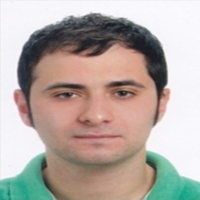










 Web
Web
He completed his doctorate in Ankara University, Department of Psychology of Religionin 2020. His doctoral thesis is on determining the spiritual needs of elderly people in nursing homes and evaluating the effectiveness of spiritual care on hope, psychological well-being and perception of God. His topics of interest are: spiritual needs, perception, gerontology, institutional silence, professional burnout, suicide, metaphor, social learning, spiritual care, love, religiosity, hope, prayer.

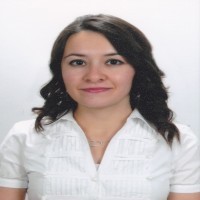
Ankara’da doğan Öztürk Aykaç, lisans derecesini Ortadoğu Teknik Üniversitesi Felsefe Bölümü’nden 2008 yılında almıştır. Yüksek lisansını Karamanoğlu Mehmetbey Üniversitesi’nde hazırlamış olduğu “Bir Beden Sosyolojisi Problemi Olarak Namus Kavramı ve Kadın Bedeni” (2012) konulu tezle tamamlamıştır. Doktora eğitimini Selçuk Üniversitesi Sosyoloji Bölümü’nde 2018 yılında tamamlayan Öztürk Aykaç, “Toplumsal Bir Tip Olarak Ankaralı” isimli doktora tezinin sahibidir. 2009 yılında Karamanoğlu Mehmetbey Üniversitesi Sosyoloji Bölümü’nde Araştırma Görevlisi olarak göreve başlamış olup 2019 yılından beri aynı bölümde Doktor Öğretim Üyesi olarak akademik çalışmalarını sürdürmektedir. 2025 yılında Sosyoloji alanında doçentliğini almıştır. Uzmanlık ve çalışma alanları arasında kent sosyolojisi, kültür sosyolojisi, beden sosyolojisi, medya ve iletişim çalışmaları, nitel araştırma metodolojisi vb. öne çıkmaktadır.

Çorum’da dünyaya geldi. İlk, orta ve lise öğrenimini burada tamamladı.
2002 yılında Tokat Gaziosmanpaşa Üniversitesi, Fen-Edebiyat Fakültesi, Türk Dili ve Edebiyatı Bölümü’nde yükseköğrenimine başladı ve adı geçen bölümden 2006 yılında mezun oldu.
Aynı yıl Tokat Gaziosmanpaşa Üniversitesi, Sosyal Bilimler Enstitüsü, Yeni Türk Edebiyatı Bilim Dalı’nda tezli yüksek lisansa başladı. 2009 yılında, Yrd. Doç. Dr. Nesîme CEYHAN danışmanlığında hazırladığı Ayhan Bozfırat’ın Hayatı, Sanatı ve Eserleri adlı tezi ile yüksek lisansını tamamladı.
Aynı yıl Karamanoğlu Mehmetbey Üniversitesi, Edebiyat Fakültesi, Türk Dili ve Edebiyatı Bölümü’nde “öğretim görevlisi” olarak akademik kariyerine başladı.
2010 yılında Atatürk Üniversitesi, Sosyal Bilimler Enstitüsü, Türk Halk Bilimi Bilim Dalı’nda doktora eğitimine başlayan Aykaç, Prof. Dr. Dilaver DÜZGÜN danışmanlığında hazırladığı Biçim ve İçerik Yönünden Ortaoyunu adlı tezi ile doktorasını tamamladı.
2016 yılı Nisan ayından beri Karamanoğlu Mehmetbey Üniversitesi, Edebiyat Fakültesi, Türk Halk Edebiyatı Bilim Dalı’nda “öğretim üyesi” olarak akademik çalışmalarını sürdürmektedir.
2022 yılında “Doçent” unvanını almaya hak kazanmıştır.

FIRAT SOYSAL
(ARAŞTIRMA GÖREVLİSİ DR)
E-Posta Adresi: fsoysal@kmu.edu.tr
Telefon (İş): 03382262000-4015
Adres: Karamanoğlu Mehmetbey Üniversitesi, Yunus Emre Yerleşkesi, Edebiyat Fakültesi, Mütercim ve Tercümanlık Bölümü, Almanca Mütercim ve Tercümanlık ABD., Zemin Kat, Oda no:5
Öğrenim Bilgisi
Doktora: SAKARYA ÜNİVERSİTESİ/SOSYAL BİLİMLER ENSTİTÜSÜ/ÇEVİRİBİLİM (DR)
Tez adı: Çeviribilim felsefesine doğru: Bilim felsefesinden yaklaşımlarla çeviribilimin evrimi (2024).
Yüksek Lisans: SELÇUK ÜNİVERSİTESİ/SOSYAL BİLİMLER ENSTİTÜSÜ/ALMAN DİLİ VE EDEBİYATI (YL) (TEZLİ)
Tez adı: Eşdeğerlik ve skopos kuramının çeviri eylemine uygulanabilirlikleri: Bertolt Brecht çevirilerine eleştirel bir yaklaşım (2012).
Lisans: SELÇUK ÜNİVERSİTESİ/EDEBİYAT FAKÜLTESİ/ALMAN DİLİ VE EDEBİYATI BÖLÜMÜ/ALMAN DİLİ VE EDEBİYATI PR. (ALMANCA), 2004-2009.
Akademik Görevler
ARAŞTIRMA GÖREVLİSİ KARAMANOĞLU MEHMETBEY ÜNİVERSİTESİ/EDEBİYAT FAKÜLTESİ/MÜTERCİM VE TERCÜMANLIK BÖLÜMÜ/ALMANCA MÜTERCİM VE TERCÜMANLIK ANABİLİM DALI, 2020-devam ediyor, (birim değişikliği).
ARAŞTIRMA GÖREVLİSİ KARAMANOĞLU MEHMETBEY ÜNİVERSİTESİ/YABANCI DİLLER YÜKSEKOKULU/MÜTERCİM VE TERCÜMANLIK BÖLÜMÜ/ALMANCA MÜTERCİM VE TERCÜMANLIK ANABİLİM DALI, 2019-2020, (birim değişikliği).
ARAŞTIRMA GÖREVLİSİ SAKARYA ÜNİVERSİTESİ/FEN-EDEBİYAT FAKÜLTESİ/MÜTERCİM VE TERCÜMANLIK BÖLÜMÜ/ALMANCA MÜTERCİM VE TERCÜMANLIK ANABİLİM DALI, 2013-2015, (35. madde ile geçici görevlendirme).
ARAŞTIRMA GÖREVLİSİ KARAMANOĞLU MEHMETBEY ÜNİVERSİTESİ/EDEBİYAT FAKÜLTESİ/MÜTERCİM TERCÜMANLIK BÖLÜMÜ/ALMANCA MÜTERCİM VE TERCÜMANLIK ANABİLİM DALI, 2009-devam ediyor.
Eserler
Uluslararası hakemli dergilerde yayımlanan makaleler:
1). SOYSAL FIRAT (2023). Enhancing Translation Studies with Artificial Intelligence (AI): Challenges, Opportunities, and Proposals. Karamanoğlu Mehmetbey Üniversitesi Uluslararası Filoloji ve Çeviribilim Dergisi, 5(2), 177-191., Doi: 10.55036/ufced.1402649 (Yayın No: 8734918).
2). SOYSAL FIRAT (2023). Çeviribilim Felsefesine Doğru: Lakonik Bir Düşünce Yolculuğu. Karamanoğlu Mehmetbey Üniversitesi Uluslararası Filoloji ve Çeviribilim Dergisi, 5(2), 162-176., Doi: 10.55036/ufced.1402662 (Yayın No: 8734890).
3). UCA ALAATTİN, SOYSAL FIRAT (2020). Bir yerlileştirme örneği: Friedrich von Schiller’e ait “Die Bürgschaft” adlı baladın Ali Bey Hüseyinzâde (Turan) tarafından Türkçeye çevirisi. RumeliDE Dil ve Edebiyat Araştırmaları Dergisi, 784-815., Doi: 10.29000/rumelide.792507 (Yayın No: 7017811).
4). SOYSAL FIRAT (2017). CUMHURİYET DÖNEMİ ÇEVİRİ KURUMLARI, TERCÜME BÜROSU VE KURUMSALLAŞMA İLİŞKİSİ ÜZERİNE BİR DEĞERLENDİRME. Journal Of History School, 10(XXXII), 211-220., Doi: 10.14225/Joh1180 (Yayın No: 4303468).
5). SOYSAL FIRAT (2015). HERMENEUTİK VE ÇEVİRİBİLİM BAKIŞ AÇISIYLA ERLEBNIS VE ERFAHRUNG KAVRAMLARININ TÜRKÇEDE ALIMLANMASINA YÖNELİK BİR YAKLAŞIM. International Journal of Languages' Education and Teaching, 1(Volume 3 Issue 3), 224-233., Doi: 10.18298/ijlet.536 (Yayın No: 2351301).
Uluslararası bilimsel toplantılarda sunulan ve bildiri kitaplarında (proceedings) basılan bildiriler:
1). SOYSAL FIRAT (2018). “Peter Camenzind” Romanının Türkçe Çevirisinde Ölüm Olgusunun Aktarımı. Karaman I. Uluslararası Dil ve Edebiyat Kongresi, 62-63. (Özet Bildiri/Sözlü Sunum) (Yayın No: 8172599).
2). SOYSAL FIRAT (2012). Werner Koller'in Eşdeğerlik Sınıflandırmasına Farklı Bir Yaklaşım. International Symposium on Language and Communication: Research Trends and Challenges (Uluslararası Dil ve İletişim Sempozyumu: Araştırma Eğilimleri ve Güçlükler), 1419-1432. (Tam Metin Bildiri/Sözlü Sunum) (Yayın No: 2351800).
Yazılan uluslararası kitaplar:
1). ÇEVİRİBİLİMDE EŞDEĞERLİK Eşdeğerlik Piramidi Modeli (2021)., SOYSAL FIRAT, Paradigma Akademi, Basım sayısı:1, Sayfa Sayısı 115, ISBN:978-625-8009-91-0 , Türkçe (Bilimsel Kitap, Tezden oluşturulmuş) (Yayın No: 7453193).
Yazılan ulusal kitaplardaki bölümler:
1). Prof. Dr. İlyas ÖZTÜRK’e Armağan- KÜLTÜRLERARASI ÇALIŞMALAR, Bölüm adı:(Oryantalizm ve Oryantalistler: Alanı, Zararları ve Yararları Üzerine Bir Değerlendirme) (2018)., SOYSAL FIRAT, SAKARYA ÜNİVERSİTESİ YAYINLARI, Editör:ŞAN Filiz, AKKAN ELİF, Basım sayısı:1, ISBN:978-605-2238-03-5 , Türkçe (Bilimsel Kitap) (Yayın No: 7017818).


Turkish Language Editor




Türkçe, İngilizce
English Language Editor

.
Proofreader

Lisans derecesini 2010 yılında Hacettepe Üniversitesi Sosyoloji bölümünden aldı. Yüksek lisansını Hacettepe Üniversitesi Sosyal Bilimler Enstitüsü Sosyoloji Anabilim dalında Doç. Dr. Abdulkerim Sönmez danışmanlığında hazırladığı ve "Toplumsal muhafazakârlığın aile, evlilik, din ve siyaset alanlarındaki tezahürleri" başlıklı teziyle 2016 yılında tamamlayan Kurtoğlu 2017 yılında Karamanoğlu Mehmetbey Üniversitesi Sosyoloji bölümünde araştırma görevlisi olarak çalışmaya başladı. 2023 yılında Hacettepe Üniversitesi Sosyal Bilimler Enstitüsü Sosyoloji Anabilim dalında Doç. Dr. Abdulkerim Sönmez danışmanlığında hazırladığı "Öznelerin deneyimleri üzerinden günlük hayat: Eleştirel bir yeniden kavramsallaştırma" başlıklı teziyle doktor ünvanı almaya hak kazanan Kurtoğlu 2024 yılından bu yana Karamanoğlu Mehmetbey Üniversitesi Sosyoloji bölümünde Dr. Öğr. Üyesi olarak akademik çalışmalarına devam etmektedir.
Scientific Advisory Board




Çağatay Benhür, 10.06.1974 tarihinde Ankara’da doğdu. 1992 yılında Ankara Bahçelievler Deneme Lisesinden mezun oldu. 1993-1997 tarihleri arasında Selçuk Üniversitesi Fen Edebiyat Fakültesi Tarih Bölümünde eğitim gördü. 1998-2001 tarihleri arasında Selçuk Üniversitesi Sosyal Bilimler Enstitüsü Atatürk İlkeleri ve İnkılap Tarihi Bilim Dalında yüksek lisansını tamamladı. 2001-2008 tarihleri arasında Selçuk Üniversitesi Sosyal Bilimler Enstitüsü Atatürk İlkeleri ve İnkılap Tarihi Bilim Dalında doktora eğitimi gördü. 1998-2009 yılları arasında Selçuk Üniversitesi Fen-Edebiyat Fakültesi Tarih Bölümünde Araştırma Görevlisi olarak çalıştı. 2009 yılından beridir de Selçuk Üniversitesi Edebiyat Fakültesi Tarih Bölümünde öğretim üyesi olarak görev yapmaktadır (2024 yılından beri Profesör). Bu arada 2002-2003 öğretim yılında Ukrayna Simferopol Pedagoji Üniversitesi Türkoloji Bölümünde konuk öğretim görevlisi olarak çalıştı. Kazakistan Kızılorda Korkut Ata Üniversitesi’nde dersler verdi. Berlin Freie Üniversitesi ve Prag Karlova Üniversitelerinde araştırmacı olarak bulundu. Askerliğini, Bursa İl Jandarma Alay Komutanlığında 2009 yılında kısa dönem olarak yaptı. İngilizce ve Rusça bilen Çağatay Benhür, evli ve 2 çocuk sahibidir.

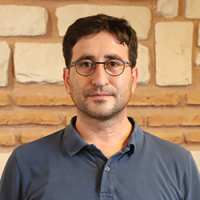
He graduated from Uludağ University, Faculty of Arts and Sciences, Department of Sociology in 2003. In 2004, he was appointed as a research assistant to Selçuk University Literature Sociology Department. He completed his master's degree in Selçuk University Institute of Social Sciences, Department of Sociology in 2005 and his doctorate in 2009. During his doctoral studies, he took courses on politics and communication at Maastricht International Communication Faculty (Hogeschool Zuyd). In 2013, he became an associate professor of sociology. Dictionary of Socialization, Social Construction of Politicity: Political Socialization and Freedom Fighter and Islamic Thinker: Aliya İzzetbegoviç (Compilation, with Faruk Karaarslan), Aliya İzzetbegoviç and July 15 from the Eyes of the Academy (Compilation, with Bengül Güngörmez), as well as articles, book reviews and book reviews in journals such as İnsan ve Toplum, Tezkire, Hece, Demokrasi Platformu, Muhafazakâr Düşünce, Sosyoloji Divanı. He worked as a faculty member at Marmara University Faculty of Communication (2014-2015). He is currently working as a faculty member at Konya Necmettin Erbakan University, Faculty of Social and Human Sciences, Department of Sociology. He continues his studies on social theory, Turkish modernization, political sociology, conservatism and sociology of childhood.




 Web
Web







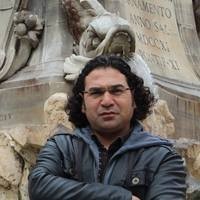
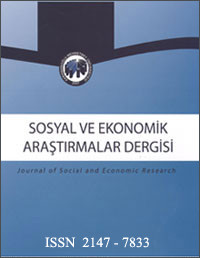

1967 Bursa Karacabey doğumlu olan Soykan, Uludağ Üniversitesi Necatibey Eğitim Fakültesi Coğrafya Öğretmenliği bölümünü 1988 yılında bitirdi. 1991 yılında İstanbul Üniversitesi Sosyal Bilimler Enstitüsü Fiziki Coğrafya Anabilim Dalı’nda Yüksek Lisansını ve 1994 yılında da Doktorasını tamamladı. 1990 yılında Uludağ Üniversitesi Necatibey Eğitim Fakültesi’nde Araştırma Görevlisi olarak göreve başlayan Soykan, 1995 yılında Balıkesir Üniversitesi’nde Öğretim Üyesi oldu. 2006 yılında doçentliğini alan Soykan, 2012 yılında da profesör oldu. 1995-1997 yılları arasında Çevre Araştırma ve Uygulama Merkezi Müdür Yardımcılığı, 1997–2000 yılları arasında ise Sosyal Bilimler Enstitüsü Müdür Yardımcılığı görevlerinde bulundu. 2000-2007 yılları arasında Dursunbey Meslek Yüksekokulu Müdürlüğü ve Balıkesir Üniversitesi Senatosu Üyeliği yaptı. 2011-2012 yıllarında Balıkesir Üniversitesi Sürekli Eğitim, Araştırma ve Uygulama Merkezi Müdürlüğü görevini yürüttü. Yurtiçinde ve yurtdışında çok sayıda bilimsel toplantıya katılan Soykan’ın yayımlanmış makalelerinin yanı sıra, kitap bölümü yazımı ve editörlükleri bulunmaktadır. Çok sayıda ulusal ve uluslararası proje ile bilimsel toplantıların organizasyonlarında görev aldı. Soykan, 2002–2006 yılları arasında Balıkesir TEMA İl Temsilcisi olarak görev yaptı. Halen BAÜN Fen-Edebiyat Fakültesi’nde öğretim üyesi olarak görev yapan Soykan, evli ve bir kız çocuk sahibi olup, İngilizce bilmektedir.
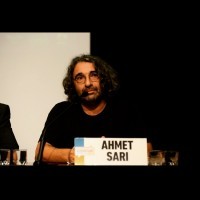
Ahmet Sarı, Atatürk Üniversitesi Alman Dili ve Edebiyatı Bölümünde Prof. Dr. olarak görev yapmaktadır. Sarı, Alman kültürü ve edebiyatı üzerine çalışmalar yapmaktadır.

Lisans eğitimini Ege Üniversitesi Coğrafya Bölümünde 1986 yılında tamamladı. Ardından İstanbul Üniversitesi Deniz Bilimleri ve Coğrafya Enstitüsü Jeomorfoloji Anabilim Dalında 1988 yılında yüksek lisansını tamamladı. Bir süre özel sektörde jeomorfolog olarak çalıştı. 1990 yılında Ege Üniversitesi Coğrafya Bölümünde Araştırma Görevlisi olarak göreve başladı. Doktorasını Ege Üniversitesi Sosyal Bilimler Enstitüsü Fiziki Coğrafya programında 2002 yılında tamamladı. Aynı bölümde doçent ve profesör oldu. Halen aynı bölümde bölüm başkanı olarak görev yapmaktadır. Fiziki coğrafyanın çeşitli alanlarında 100'den fazla makalesi ve bildirisi bulunmaktadır.

Prof. Dr. Mehmet Hilmi Demir, whose academic research focuses primarily on Philosophy of Mind, Philosophy of Cognitive Science, Philosophy of Information, and Philosophy of Probability, received his PhD in philosophy and cognitive sciences from Indiana University, Bloomington. His interdisciplinary work has been published in publications such as the Australasian Journal of Philosophy, Mind, Logique et Analysis, Journal of Logic Language and Information, Beytülhikme, and Cilicia Philosophy Journal.
In addition to his academic work, Prof. Dr. Mehmet Hilmi Demir volunteers for social projects supporting disadvantaged groups in Turkey. He previously served as a faculty member at the Philosophy Departments of California State University (San Bernardino), Bilkent University, and METU. Before entering academia, he worked as a researcher in the market research sector, developing research models for measuring brand loyalty and consumer satisfaction.

Genel ifadesiyle İslam Sanatları alanında özel baglamıyla Anadolu Selçuklu Sanatları hususunda araştırmalar yapmaktadır.
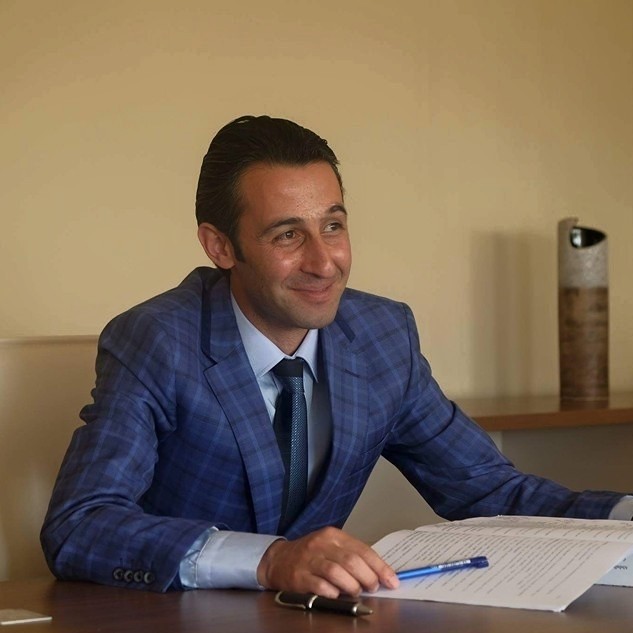


.
Journal of Karamanoğlu Mehmetbey University Faculty of Letters is licensed under a Creative Commons Attribution-NonCommercial-NoDerivatives 4.0 International License.
















